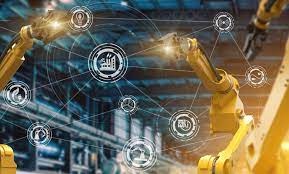ISLAMABAD: A manufacturing process based on artificial intelligence (AI) is more efficient and less reliant on manpower in terms of production. AI reduces operational costs and downtime by optimizing and scaling manufacturing.
Talking to WealthPK, an official from the Ministry of Industries and Production who wished to remain anonymous said, “technology has a major role in the development of any country’s economic growth, but compared to other countries, Pakistan is far behind in adapting innovation.”
He said, “Pakistan has much potential in AI since it can address a variety of local issues, including those related to manufacturing, climate change, agriculture, and government.”
“There is a wide range of industries that use AI, including finance, retail, commercial, and government. Additionally, it is gradually making its way into the manufacturing sector, helping to automate the manufacturing process. AI-driven machines are paving the way for a better future by offering new options, increasing manufacturing efficiencies, and bringing machine interfaces closer to human interaction, giving machine users a better way to communicate with machines.”
He said, “in today’s manufacturing world, there is no doubt that it is more important than ever for people to understand the significance of manufacturing, especially as automation and AI are increasingly being used for manufacturing purposes.”
“Manufacturing plays a crucial role in our economy and is essential to a number of industries. It is responsible for making the products we use in our everyday lives, such as clothing, food, electronics, and automobiles. There are also millions of jobs that are created around the world as a result of manufacturing,” he added.
“In order to sustain our economy, we would not be able to produce the products that we need or have jobs without manufacturing. As a result, it is of utmost importance that the manufacturing-related businesses are supported and invested in for a long term. With the right policies in place, manufacturing can continue to play a significant role in driving economic growth and prosperity for the region.”
He added, “in the industry, AI helps overcome many internal challenges, including expert shortage, complexity in decision-making, issues related to integration, and information overload. By using AI in the manufacturing facilities, the companies are able to transform their operations in an entirely new way.”
“Additionally, AI can also help firms become more flexible and responsive to change. Its use can quickly change the manufacturing lines to meet demand. For instance, if demand for a product suddenly shifts. In today’s ever-evolving economy, this flexibility may be essential,” he said.
“In general, AI is able to make the manufacturing industry a more dynamic and effective service. As AI technology advances, we can only speculate about the new opportunities that will become available in this area.”
“There is one area where AI has made a significant impact, and that is quality control. Using sensors and data analytics, AI-powered robots can inspect products for defects much more accurately than humans can. The result is a reduction in defective products that make it to market, as well as an improvement in the overall quality of the manufacturing process.”
In general, AI is providing a boost to the manufacturing sector. As this technology continues to develop, it is likely that its impact on manufacturing will only grow stronger in the years ahead.





